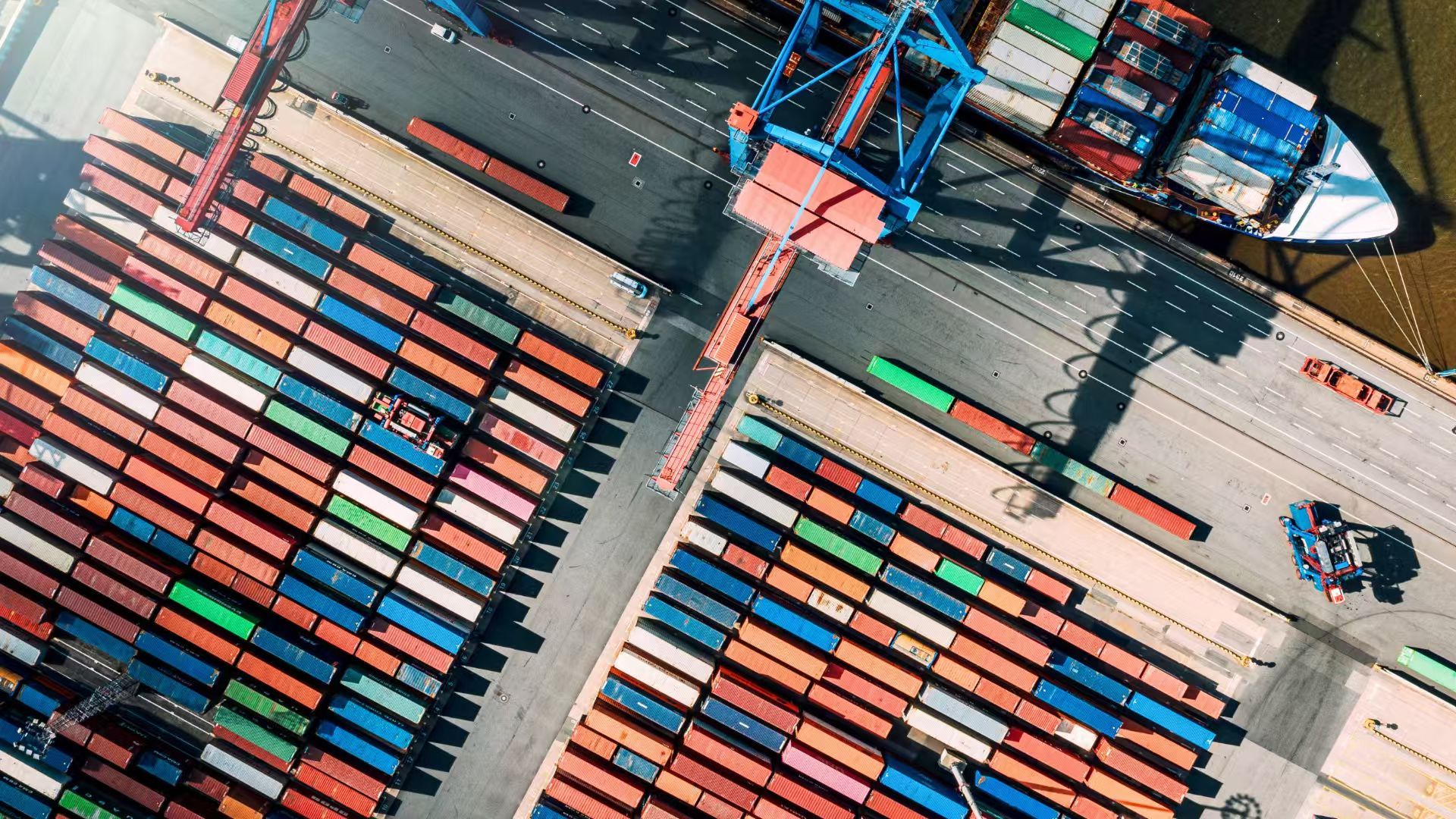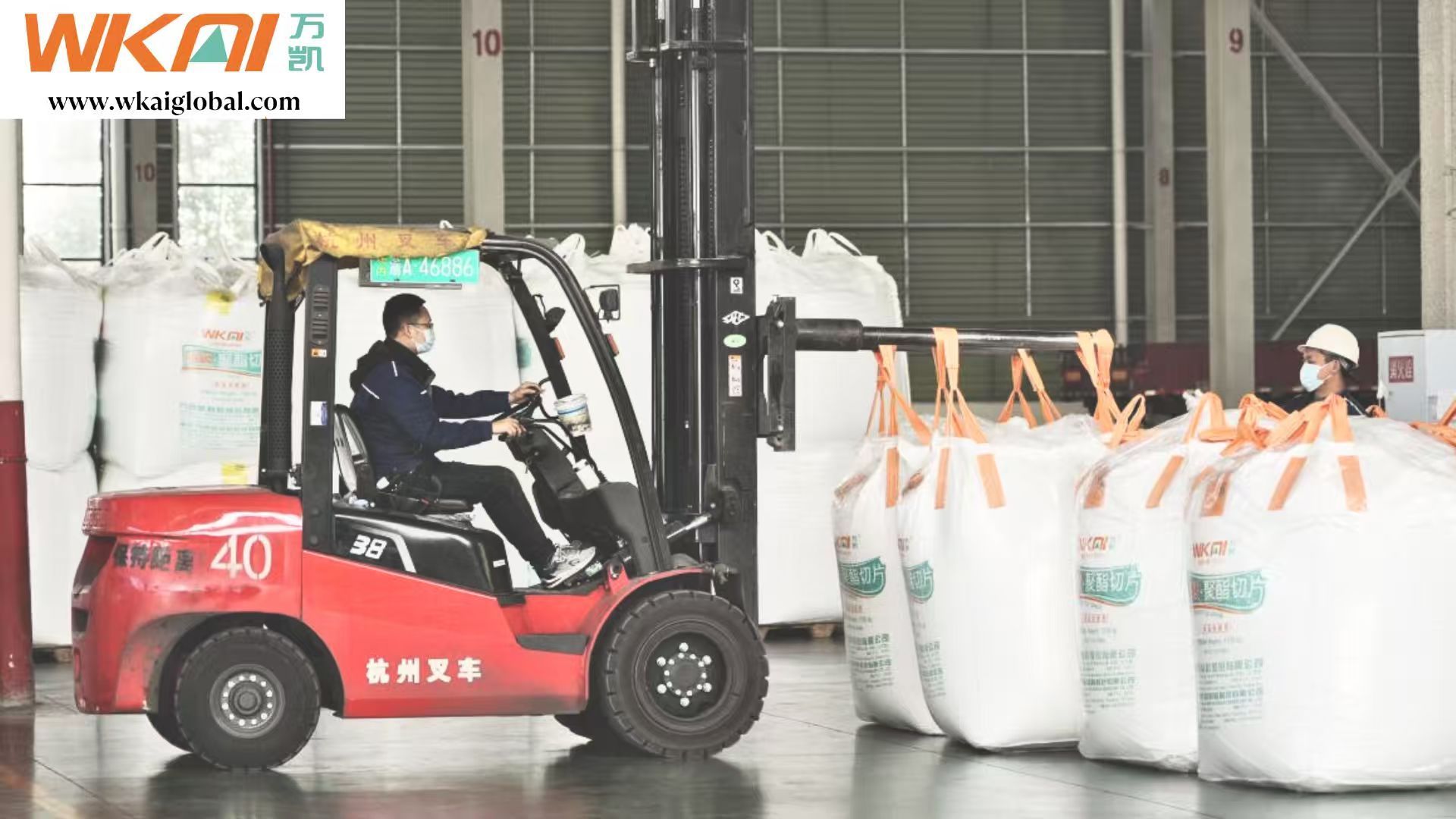
Global Shipping Volatility and Its Impact on PET Resin Procurement
Factors Driving the Volatility
In 2024, the shipping market experienced significant disruptions. Key regions, such as the Red Sea, faced security challenges, while concerns over potential dockworker strikes at U.S. East Coast ports contributed to delays. These factors, coupled with shifting international trade dynamics, have resulted in significant fluctuations in the shipping market that are expected to carry into 2025.
Maersk forecasts a 4% growth in the global container shipping market in 2025, though the outlook remains uncertain. Factors such as potential high tariffs on Chinese goods and security issues in key shipping routes continue to create uncertainties in the market’s trajectory. Moreover, changes in global trade routes are prompting shipping operators to shift from large vessels to medium-sized ones in response to evolving trade flows. These factors are combining to impact global shipping operations significantly.
Why Shipping Costs Remain High: Uncertainty and Strategic Slowdown at Singapore Maritime Week
At the recent Lloyd's List Outlook Forum during Singapore Maritime Week, experts discussed how global geopolitical instability and uncertainty are contributing to high shipping costs, exacerbating an already volatile market.
Slowing Strategic Investments Due to Geopolitical Tensions
Geopolitical tensions, particularly US-China relations, alongside tariffs and trade barriers, have significantly slowed strategic investments in the shipping sector. These geopolitical strains have led to a more cautious approach from businesses, with companies hesitant to make long-term commitments amidst such instability.
Fragmenting trade relationships, shifting trade routes, and the unpredictable nature of global supply chains further add to the uncertainty. As companies face increased operational risks, shipping costs rise in response to disrupted supply chains and the higher costs of securing reliable services.
Newbuilding Prices at Their Peak, Market Remains Tight
According to industry reports, newbuilding prices for vessels have hit record highs. This price surge is driven by the increased demand for vessels to meet the global shipping rebound post-pandemic, as well as by rising material costs and labor shortages in shipbuilding.
Furthermore, with shipyards fully booked for the next couple of years, the backlog in new ship orders is expected to keep the market tight. Experts suggest that even if newbuilding prices begin to level off or decline slightly, the lack of available capacity to construct new vessels will prevent any significant market easing in the short term.
This ongoing shortage of vessel availability is directly contributing to inflated transportation costs. As shipping companies face higher capital expenditures to secure and maintain fleets, these costs are inevitably passed on to consumers and businesses.
Challenges in Achieving Green Shipping and 2050 Decarbonization Targets
The shipping industry's commitment to achieving net-zero emissions by 2050 is being tested by the higher operational costs of low-carbon fuels like LNG and methanol. While these fuels are essential for meeting environmental goals, their adoption is increasing shipping costs, which are ultimately passed onto consumers.
The International Maritime Organization (IMO) plays a critical role in driving sustainability, mandating the use of these low-carbon fuels. However, the higher operational costs associated with their use are contributing to the sustained high shipping fees in the industry.
Navigating Global Shipping Uncertainty: Strategic Approaches for PET Resin Buyers
In an increasingly unpredictable global shipping environment, PET resin buyers must adopt proactive strategies to maintain supply chain stability and manage potential challenges. Below are key considerations for effectively navigating this evolving landscape:
Securing Reliable Supply through Strong Partnerships
Establishing solid relationships with large-scale PET resin manufacturers can help ensure a more consistent and dependable supply of materials. Manufacturers with significant production capacity, such as Wankai New Materials, can better handle market fluctuations, shipping delays, and potential raw material shortages. These companies typically have more extensive inventory reserves and a well-developed logistics network, enabling them to provide more predictable delivery timelines and reduce the risk of disruptions.
Collaborating with Experienced International Trade Partners
It is essential for buyers to work closely with PET resin manufacturers who have extensive international trade experience. Companies like Wankai New Materials, with over 14 years of expertise in international trade, are equipped to manage the complexities of shifting trade policies, tariffs, and logistics challenges. Our comprehensive order tracking and customs declaration systems ensure timely deliveries and minimize risks associated with global trade fluctuations.
Staying Informed on Global Market Trends
Monitoring international political, economic, and shipping industry trends is critical for anticipating potential shifts that could affect procurement. Wankai is increasingly leveraging digital marketing to establish direct communication with customers and stay attuned to market changes. By utilizing these channels, buyers can enhance their flexibility in procurement strategies and secure a stable supply amidst evolving global dynamics.
Looking Ahead: Flexible Strategies for Long-Term Success
The shipping market's volatility shows no signs of easing in the near future, and businesses must remain agile to manage costs effectively. By diversifying suppliers, using smart logistics, and staying informed about geopolitical developments, companies can better navigate procurement challenges.
Wankai New Materials, a recognized producer and exporter of PET resin, is committed to optimizing its logistics and supply chain management. With strong production capabilities and efficient warehousing systems, Wankai works to ensure timely and secure deliveries. The company also engages in industry shipping forums to stay informed about trends and improve its service offerings.
References and Sources
1. Clarksons Research. "Global Shipping Cost Increase Data 2024."
2. Drewry Shipping Consultants. "Shipping Market Volatility Analysis 2024."
3. World Bank. "Global Supply Chain Delay Cost Impact Analysis."
4. International Trade Centre (ITC). "Transportation Cost Challenges for SMEs."
5. Boston Consulting Group (BCG). "Impact of Smart Logistics Systems on SME Costs."
6. World Trade Organization (WTO). "Global Trade Restriction Measures Statistics."
7. Meade, R. (2025, March 25). Strategic slowdown across businesses as uncertainty stalks Singapore Maritime Week. Lloyd's List.


